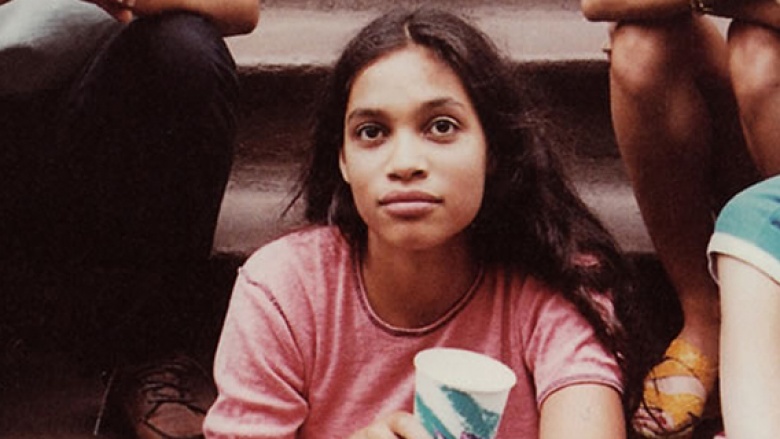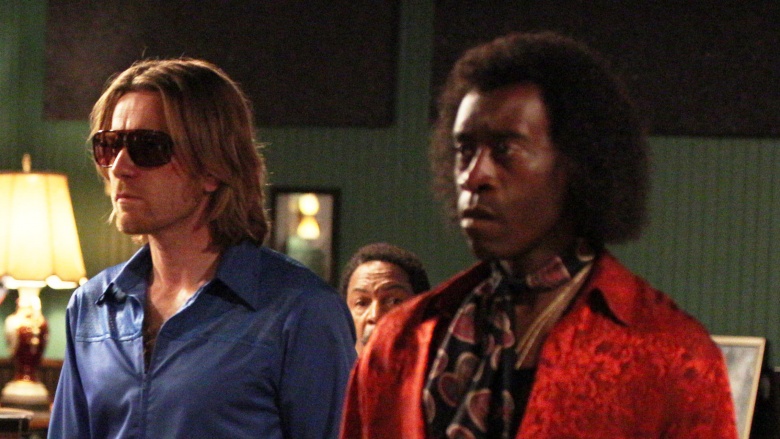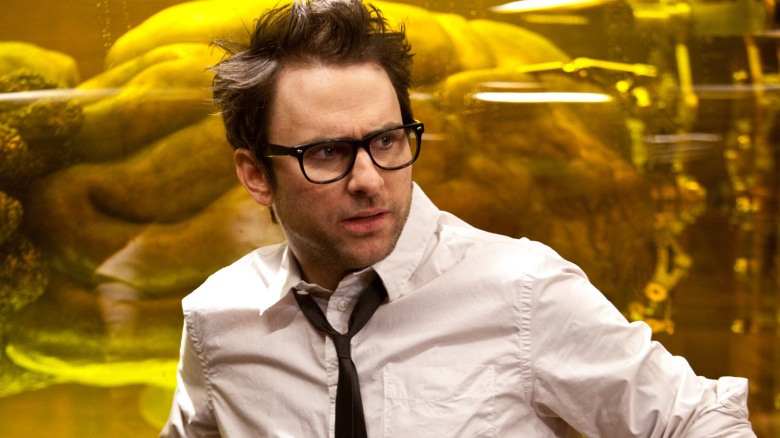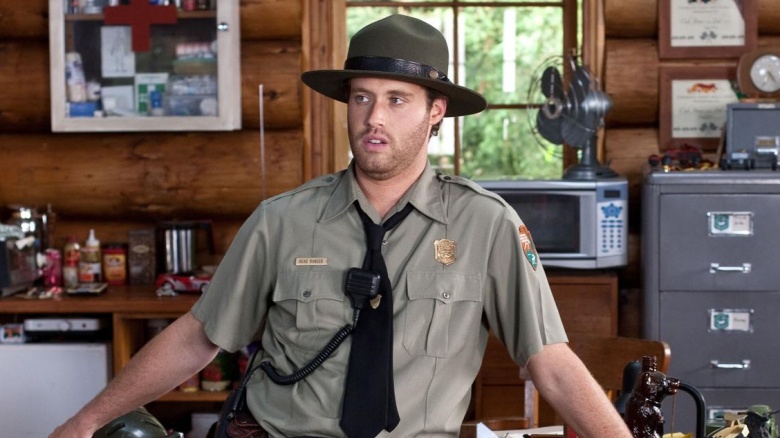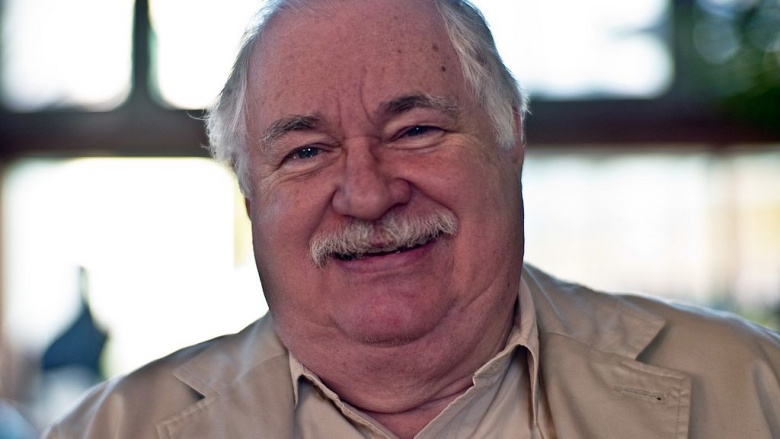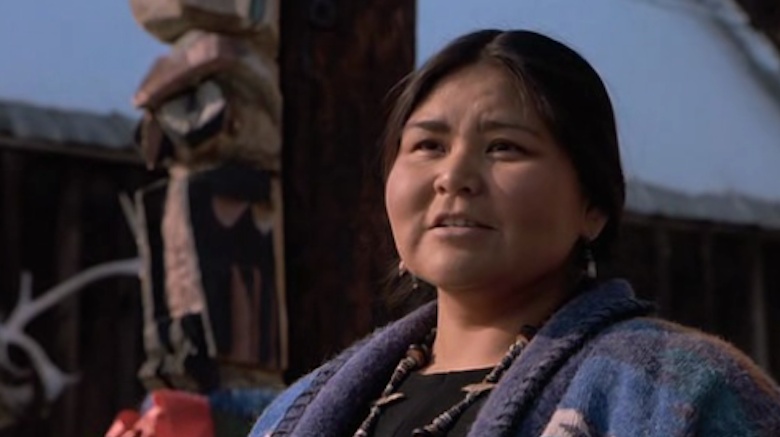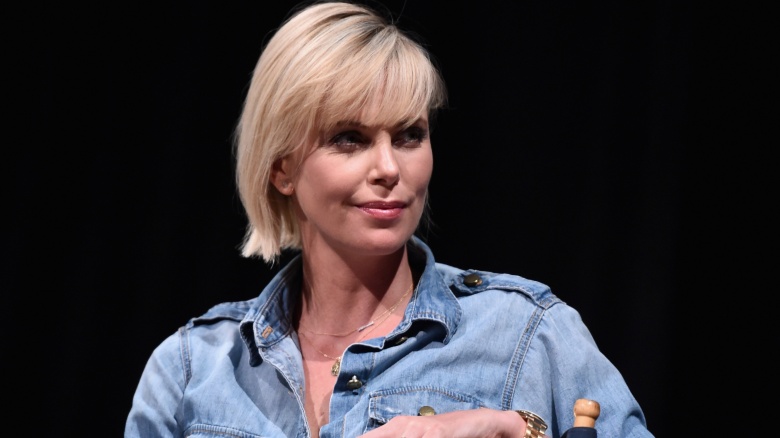Messed Up Stories Behind Casting Choices
Usually, movies and TV shows round out their ensembles through a lengthy casting process. Dozens of actors and actresses audition, casting directors pick the most promising or appropriate candidates, and then make final decisions with the project's director, as well as producers and studio executives. But it can be a lot more complicated than that—sometimes, directors' whims and studio interference get in the way, or other complications rear up. Here are some bizarre stories about the strange ways some actors did (or didn't) get the part.
Jon Hamm
When director David Fincher was putting together a film adaptation of Gillian Flynn's bestseller Gone Girl in 2014, he had one big name in mind for the lead role of cheating husband (and ultimate patsy) Nick Dunne: Jon Hamm. At the time, Hamm was wrapping up a seven-year, Emmy-winning stint in the role that made him famous, Don Draper on AMC's Mad Men. Hamm was eager to take on Gone Girl—he needed work after Mad Men completed, and he was especially interested in jumpstarting a movie career. But he couldn't get out of his Mad Men duties—creator and showrunner Matthew Weiner wouldn't rearrange the show's production schedule to accommodate Hamm running off.
Rosario Dawson
Kids is a deeply harrowing indie drama from director Larry Clark about teenagers in New York City doing drugs, having unprotected sex, and engaging in other risky behavior. In her first-ever role, Dawson played the sexually precocious and promiscuous Ruby. Director Clark (and screenwriter Harmony Korine) wanted a certain gritty realism to the movie, part of which meant relying on inexperienced actors. While walking around the Alphabet City neighborhood of New York one day scouting for filming locations, they spotted Dawson sitting on her stoop. They told her about the movie, and said she was "perfect" for the role. The crazy thing is that Dawson's dad had actually told her to go sit on the stoop and wait to be discovered—a commercial was being filmed on the block and a couple of locals had been asked to be backup dancers.
Don Cheadle
After starring in acclaimed movies like Traffic, Hotel Rwanda, and Flight, Don Cheadle appeared to have amassed enough influence and goodwill to get his passion project off the ground: Miles Ahead, a biopic about legendary jazz musician Miles Davis. Cheadle co-wrote the movie and planned to star as Davis, crowdfunded a bunch of money, and approached production companies about filling in the rest of the budget. No go, said executives. They didn't think the movie was marketable if it didn't have a white actor in a major role. Cheadle rewrote the script to be less of a Davis biopic and more of a caper movie with events that Davis "might like to have been a part of." To get that plot going, Davis created a fictional Rolling Stone reporter named Dave Braden, and cast white actor Ewan McGregor in the role.
Charlie Day
Day costars on It's Always Sunny in Philadelphia, the dark FXX sitcom he co-created partly as a way to get himself acting work. In 2013, that gambit paid off. As he recalled during an appearance on Late Night with Jimmy Fallon, he got a call from director Guillermo Del Toro, who offered him a part in the big-budget disaster movie Pacific Rim because he liked his work on Sunny. Specifically, he enjoyed the episode "Charlie Kelly: King of the Rats," in which Day's character is haunted after slaughtering a bunch of the titular rodents.
Sally Field
Sally Field won the role of First Lady Mary Todd Lincoln, then lost it, then won it again. Steven Spielberg asked the Oscar-winning actress to play the role in 2005, when Liam Neeson was set for the role of Abraham Lincoln. Multiple writers and drafts of the script followed—and Neeson was replaced with Daniel Day-Lewis—before the movie picked up speed again in 2012. At that point, Spielberg told Field he might have to recast her role because in real life, Lincoln was ten years older than his wife, whereas Field was ten years older than Day-Lewis. Field fought for the part, convincing Spielberg to give her a screen test in full hair and makeup. Spielberg still wasn't convinced, but then Day-Lewis got wind of the situation and offered to shoot another screen test with Field. Finally, after seeing the two actors together, Spielberg let Field keep the part he'd promised her seven years before.
T.J. Miller
Before his breakout role as Erlich Bachman on HBO's Silicon Valley, Miller was best known as a standup comic and for his role on the short-lived ABC sitcom Carpoolers. In 2010, he was up for the role of Ranger Jones in the live action/CGI hybrid Yogi Bear adaptation. He'd already auditioned for the part twice, but cinched the deal in a very unique way: instead of going in to meet with casting directors a third time, Miller made an audition tape decked out in full ranger gear and acting alongside an actual bear he rented for the day to "portray" Yogi.
Carl Gottlieb
Steven Spielberg met Carl Gottlieb in the '60s, when the former had just moved to Los Angeles to make movies and the latter was a writer on The Smothers Brothers Comedy Hour. (Also on that writing staff: Steve Martin, with whom Gottlieb would one day write The Jerk.) Spielberg frequently gave Gottlieb small parts in his early film and TV projects, and kept up the tradition by offering him the role of newspaperman Harry Meadows in Jaws. But just a few weeks before filming was supposed to start, Spielberg realized his screenplay was a mess and asked Gottlieb for help. Instead of punching it up, Gottlieb performed a complete rewrite. He whipped the script into shape, but in doing so greatly reduced his own part down to a bit role. (In the book, Meadows was an important character, helping to cover up the shark attacks terrorizing the town to preserve high coastal real estate prices.)
Mel Gibson
One night in the late '70s, a drunken Mel Gibson got into a bar fight with what he said was "half a rugby team"—an encounter that left him with a bruised and bloody face. A few days later, he drove a friend to an audition for a small independent action movie. He stuck around when the casting director saw him and said "We need freaks." They asked him to come back when he wasn't so battered, and he did. Upon Gibson's return, the movie's director, George Miller, gave him two pages of dialogue and asked him to memorize it for his official audition. Gibson couldn't remember much of it, and ad-libbed instead; somehow, he still got the role of Mad Max in The Road Warrior.
Elaine Miles
Part of what made CBS's quirky dramedy Northern Exposure so charming was the local flavor added by the townsfolk who populated the show's setting of Cicely, Alaska. Especially memorable was Marilyn Whirlwind, the near-silent receptionist for Dr. Joel Fleischman. Elaine Miles played the part—her first-ever acting role—and she wasn't even looking to become an actress. She'd driven her mother to the audition and sat in the waiting room. A casting agent saw her, thought she was perfect for the part, and asked her to audition. (Sorry, Mom.)
The Casting Couch
No article about the unorthodox ways in which actors get their roles would be complete without at least a mention of the "casting couch." That's a euphemism for a notorious, rumored Hollywood practice of predatory film industry workers who give actresses (or actors) a role in exchange for sexual favors. There are hundreds of salacious rumors, and a few actresses have come forward about the times they had to face this ugly side of the movie industry.
Young and green Gwyneth Paltrow dealt with a casting agent who suggested that they "finish a meeting in a bedroom. I left. I was pretty shocked."
In 1994, 19-year-old South African model Charlize Theron moved to Hollywood to become an actress and was almost caught in a creepy trap by a sleazy producer. "I thought it was a little odd that the audition was on a Saturday night at his house in Los Angeles...But it soon became very clear what the situation was. I was like, 'Not going to happen!'"
Megan Fox told GQ in 2009 that the casting couch pressure she'd felt occurred not in her early days as an actress, but after she got famous. She especially lamented how she thought "Hollywood legends" wanted to meet her and have a conversation...before she realized "that's not what they want at all."


